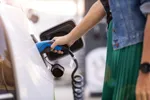But if they spent half a day with the fleet department, they would see the vital work that is carried out every day, ranging from basic issues such as vehicle purchase, to ensuring staff are safe to drive and managing the aftermath of any accidents.
The cost of operating an average fleet is second only to wages in most firms and the range of duties involved makes it one of the most complex parts of any business. Yet this year, in addition to the impressive workload fleet decision-makers already have, there is a fresh batch of challenges.
From the European Fourth Motor Insurance Directive to the latest changes to company car tax, congestion charging, alterations to National Insurance Contributions, changes to Block Exemption and potential legislation banning the use of hand-held mobile phones while driving, decision-makers are rightly expecting their roles to get more difficult over the next year.
An overwhelming 84% believe it will be more difficult to carry out their core roles during the next 12 months because of the weight of additional tasks they will face. Even many of the remaining 16% who said 'no' qualify their statement by saying it will be more challenging rather than more difficult.
As one member of the fleet panel comments this week, the role of a fleet decision-maker now spans most aspects of a company's operations, from health and safety to financial controller, administration, purchasing and sales.
If there was ever an argument for companies to invest in qualified, trained and expert employees to run their fleets, then surely this is it.
##Jan9 panel--none##
'I expect my role to become more difficult. I'm sure there is a method to all this madness but I fail to understand the reasons for some of the changes. Congestion charges can only be fully justified once a viable alternative public transport system is in place.
'If politicians were serious about congestion and environmentally-friendly vehicle,s they would do more to encourage their use instead of using the issue as a platform to increase taxation by devious means.
'There are real and tangible means of reducing congestion in all our cities, but it involves investment which the government cannot afford because it is too busy siphoning our vehicle- related taxation into areas other than transportation.'
John Clarke
Telewest Broadband
'Yes. I do believe it will become more difficult. The role of the fleet decision-maker is becoming more of an accountant and human resources role, with more administration duties.'
C.S, via email
'I would not expect the role necessarily to become more difficult, just more involved, with more to consider when writing procedures and taking decisions. Our employers would, I suggest, argue that this is what they pay us for.'
Chris Bates
Facilities manager, Lafarge
'I said that I would vote for any party that promised to 'cut red tape' – so far I have voted Conservative and Labour – both have let me down!'
G.R, via email
'I can see the administration burden increasing considerably with the introduction of congestion charges, new legislation, bans on the use of hand-held mobile phones while driving and so on, with more emphasis on an employer's responsibility for the actions of company car drivers.'
Richard Warner
Company secretary, Seco Tools (UK)
'It will be more difficult and there will be all the usual constraints on budgets, plus health and safety issues. It should make for an interesting year.'
Nick Welch
Pinnacle Insurance
'Over the past few years fleet management has become more involved and will continue to do so. The most difficult and frustrating part of the job is being aware of forthcoming issues and knowing the changes that need to be made, but not being able to make the decision at my level.'
Joanne Hanafan
Fleet manager, King UK
'As well as operating a fleet of reps' cars and some delivery vans we have to use a national carrier to deliver our merchandise. In four years we have seen the cost of those deliveries increase by 34%.
'This is a reflection of national congestion more than anything else. We must now face the reality of increasing our delivery fleet and doing much more of the distribution ourselves.
'The situation on our roads has had a knock-on effect on our reps. There is no doubt that their productivity has been affected by congestion and disruption. And when will Whitehall realise that all regulation costs money? Every added complication in our tax and benefit system costs money.'
Richard Graham
Gisela Graham
'Trying to keep the records up-to-date will become difficult and time consuming. It is essential now for fleets to have a computer database they can rely on.'
Audrey Milne
Fleet manager, Bayer
'These measures clearly will make the fleet decision-maker's life more difficult. Reasons will vary depending upon the circumstances, but the new joker in the pack for many will be the costing and budget planning problems arising from congestion charging. Rates and collection methodology is not fully thought out in all areas, resulting in major headaches for fleet decision-makers.'
Nicholas Bennett
Head of the Compensation & HR Practice, Buck Consultants
'Yes, there can be no doubt that the role of the fleet manager will become ever more challenging and swamped with new initiatives and legislation. A free gift from Fleet News of a red tape cutter would be much appreciated!'
Peter Bonney
Salvation Army















Login to comment
Comments
No comments have been made yet.